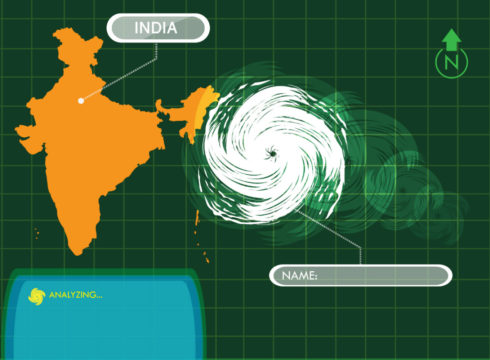SUMMARY
It is currently testing its ML-driven initiative in Patna
It generates high-resolution elevation maps for flood forecasting
Google plans on scaling it to additional locations
Inc42 Daily Brief
Stay Ahead With Daily News & Analysis on India’s Tech & Startup Economy
Google in collaboration with the Indian government is currently testing its machine learning (ML)-driven Flood Forecasting Initiative in the city of Patna in Bihar — a new approach towards generating high-resolution elevation maps for flood forecasting. Depending on the success of the project, it plans on scaling it up to additional locations within the Ganges and Brahmaputra basins.
According to Sella Nevo, a software engineer who specializes in machine learning research and development, who is leading the initiative, about 20% of fatalities worldwide from flooding occur in India. It chose Patna as an ideal location due to incessant rainfall the city receives, number of embankments and other man-made structures, which the project needs to be dealt with.
Bihar is also the country’s most flood-prone state with 73% of its 94,163-sq.km area getting flooded annually, according to the International Water Management Institute (IWMI).
For this initiative, the Indian government is providing Google with stream gauge measurements as well as forecasts based on their gauge-to-gauge forecasting system. Google is using these as inputs to its system which then provides an accurate map to know which areas exactly are going to be inundated.
Google will use its ML expertise and computational power and other resources and data to substantially improve flood forecasting systems, their accuracy, their lead time, Nevo told Livemint.
In one of the recent trials conducted in the past monsoon season in September last year, Google was able to provide 90% accuracy in the flood alert with inputs received from the Central Water Commission (CWC).
“For that event, we sent an alert to people within about 1,000 square kilometres around Patna and the alert had a map that indicated which areas are likely to get flooded or are somewhat likely to get flooded and which areas are not likely to get flooded,” Nevo said.
Challenges And The Use Of ML In Flood Forecasting
According to Nova, Google has developed a technology which generates elevation maps at one-meter resolution. It updates it annually to track the dynamic tendency of the rivers having severe flooding tendencies.
Secondly, hydraulic modelling is done to determine how the water will behave when it moves across the floodplain, which areas it will go to, and which areas are going to be affected and which ones are going to be safe, Nova said.
“Other than the challenge of getting elevation maps, there is also the challenge of computational complexity. If you want to have a high-resolution model, it becomes incredibly computationally expensive,” he said.
Google uses satellite imagery to estimate how much water has gone through a river and uses ML to integrate data from optical imagery, infrared imagery, radar, as well as microwave signals.
According to CWC data, heavy rains and floods have caused the death of as many as 107,487 people and accounted for the loss of INR 365,860 Cr across India between 1953 and 2017. Most of these deaths were caused not only because of high-intensity rainfall but also because of poor or inadequate drainage capacity, unplanned reservoir regulation and failure of flood control structures.
Last year, Kerala witnessed one of the worst floods in its history with more than 1K deaths. According to the state government’s own data, a total of 13,362 houses were fully damaged, 1,075 were landless and the state incurred INR 31,000 Cr loss in the flood.
[The development has been reported by Livemint.]
Note: We at Inc42 take our ethics very seriously. More information about it can be found here.


